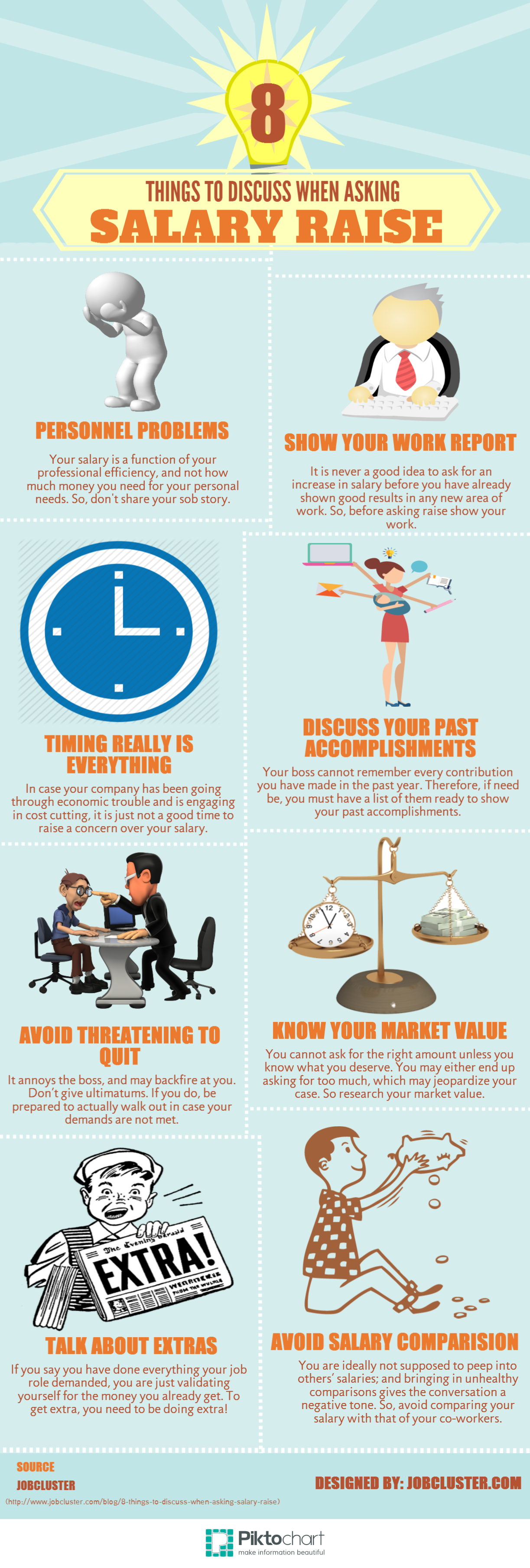As many of us go into performance review season, we anticipate a monetary outcome. Yet 43% of us never ask for a raise.
You don’t know, if you don’t ask!!
Many performance reviews do not include a compensation conversation. Its important to discuss what’s going well, what to improve and what’s coming next to set goals. Talking about money overshadows that conversation. Salary increases may happen only at the beginning of the fiscal year. Check your organization’s policy and procedure. Then see what type of exceptions are made.
Best case scenario – your boss wants to surprise you with the reward of a raise. Let her have that pleasure of showing how much she values your contributions.
The usual reality is your boss doesn’t want to discuss money any more than necessary. Budgets have been tight – she had to fight to just get the minimum for her staff. High company profits don’t necessarily tie to salary increases due to business strategies.
Your strategy needs to take both scenarios into account. Take time now to prepare the justification for why your work merits increased compensation. Your manager will need this to go to bat for you. Unless you are covered by a contract, longevity isn’t necessarily a reason – that’s just stamina!
A salary increase is a business decision, not about your personal financial needs and wants. Leave your anger and fears out of the conversation. Guilt trips don’t work either. Lead with the facts:
#1 When so many of us are now doing the work of formerly 2-3 jobs, documenting your efficiencies and how much money you are saving the company is the math that your boss needs to justify a raise. Remind her of the over and above things you’ve accomplished. Describe the challenge, what you did and the result, including who benefited and how. What potential problems did you prevent?
#2. Salaries are determined around a variety of factors: the industry standard for the skill sets (not just job title), what the competition pays, geographic area, value of the work in your organization and internal equity are the major ones. Here are a few ways to determine your worth:
- Check professional associations which often do salary surveys.
- Compare date on several online sites such as Career Onestop, Salary.com, Vault.com, Glassdoor.com and Jobstar.org
- Survey job postings similar to your job and their salary levels. Check a variety of job boards to get the range.
- Ask recruiters and other knowledgeable individuals:
“I’ve been researching ‘XXX’ positions in the ‘YYY’ industry, especially in the ‘ZZZ’ region. So far, I have been unable to find good recent information on the salary range for ‘AAA’ positions. From your experience, what is the salary range from ‘new-to-title/first-time hires’ to the ‘very experienced pros’? What would you say is the average salary? What factors determine where in the salary range a person is placed?” ” Who else would you recommend I talk with?”
#3 Don’t wait until a performance review to start the discussion. Learn when budget negotiations happen in your organization, generally six months before a new fiscal year. That is when jockeying for scarce salary dollars begins.
This great infographic has additional tips from Florence Lewis on the critical salary discussion!

